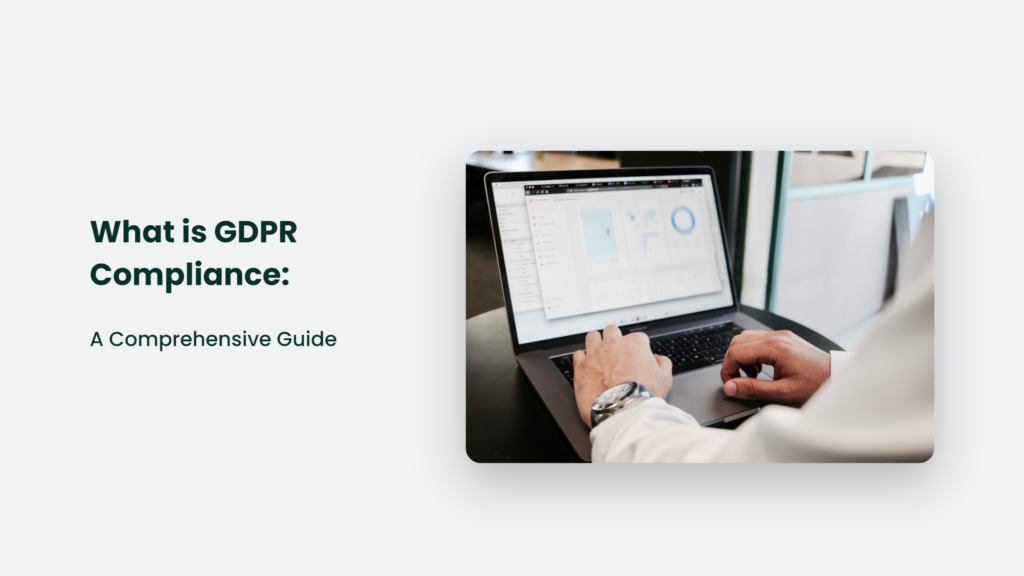

What is GDPR Compliance: A Comprehensive Guide

As Seen On
In today’s digital age, where data is the new oil, protecting individuals’ privacy and rights is paramount. One of the most significant steps taken in this direction is the General Data Protection Regulation (GDPR). But what is GDPR compliance, and why is it crucial for organizations? Let’s delve into this comprehensive guide to understand the ins and outs of GDPR compliance.

What is GDPR Compliance?
GDPR compliance refers to an organization’s adherence to the regulations outlined in the General Data Protection Regulation. This regulation, which came into effect in May 2018, aims to safeguard the personal data of individuals within the European Union (EU) and the European Economic Area (EEA). However, its impact is felt globally, as it applies to any organization that handles the data of individuals in the EU, regardless of the organization’s location.
The Key Pillars of GDPR Compliance
GDPR compliance revolves around several key principles and requirements, including:
- Lawfulness, Fairness, and Transparency: Organizations must process personal data lawfully, fairly, and transparently.
- Purpose Limitation: Data should be collected for specified, explicit, and legitimate purposes and not further processed in an incompatible manner.
- Data Minimization: Organizations should ensure that personal data is adequate, relevant, and limited to necessary information.
- Accuracy: Personal data should be accurate and, where necessary, kept up to date.
- Storage Limitation: Data should be kept in a form that permits identification of data subjects for no longer than is necessary for the purposes for which the personal data is processed.
- Integrity and Confidentiality: Organizations are responsible for ensuring the security, integrity, and confidentiality of the personal data they process.
- Accountability: Organizations must demonstrate compliance with the principles of GDPR.
Steps to Achieve GDPR Compliance
Achieving GDPR compliance is a multifaceted process that involves various steps. Here are the key measures that organizations need to take:
- Conduct a Data Audit: Understand your personal data, where it came from, and who you share it with.
- Update Privacy Policies: Ensure your privacy policies are concise, transparent, and easily accessible.
- Implement Data Security Measures: Put in place robust security measures to protect the personal data you hold.
- Obtain Consent: Review how you seek, obtain, and record consent and whether you need to make any changes.
- Data Subject Rights: Be prepared to handle individuals’ rights, including access, rectification, erasure, and data portability.
- Data Protection Impact Assessment (DPIA): Assess the impact of the data processing activities on individuals’ privacy.
- Data Breach Response Plan: Have a robust plan to detect, report, and investigate a personal data breach.
- Employee Training: Ensure your staff is adequately trained on best practices for data protection and privacy.
The Importance of GDPR Compliance:
The importance of GDPR compliance cannot be overstated, as it significantly impacts businesses and individuals alike. Here’s a more in-depth look at why GDPR compliance is crucial:
Protection of Personal Data
GDPR compliance is vital for safeguarding EU citizens’ personal data and privacy. It sets a high standard for data protection and requires organizations to handle personal data transparently and securely.
Global Relevance
While GDPR is an EU regulation, its impact is global. Any organization that handles the data of individuals in the EU, regardless of location, must comply with GDPR. It means businesses worldwide must adhere to its standards, making it a pivotal regulation in the digital era.
Trust and Reputation
Compliance with GDPR enhances trust and credibility. It demonstrates a commitment to respecting individuals’ privacy and upholding data protection standards, essential for maintaining a positive reputation and building customer trust.
Legal and Financial Ramifications
Non-compliance with GDPR can lead to severe consequences, including hefty fines. Organizations can be fined up to €20 million or 4% of their global annual turnover, whichever is higher, for the most serious infringements. It can have a significant financial impact and damage an organization’s bottom line.
Data Security and Incident Response
GDPR compliance necessitates robust data security measures and incident response plans. By adhering to GDPR standards, organizations can proactively enhance their data security and respond more efficiently to incidents that threaten business continuity.
Improved Data Handling and Transparency
GDPR promotes responsible and transparent data handling. It requires organizations to give individuals more control over their personal data, fostering a culture of responsible data management and transparency.
Business Benefits
Despite the initial investment, GDPR compliance offers several benefits, including increased data security, improved customer trust, and a cleaner legal environment for business operations. It can also reduce the number of personal data breaches, which is advantageous from both a cost and reputation perspective.
Real-World Examples
Several high-profile cases have highlighted the significance of GDPR compliance. For instance, British Airways and Marriott International were both fined millions of pounds for data breaches that exposed their customers’ personal and financial details.
Frequently Asked Questions:
What are the basic requirements of GDPR?
The basic requirements of GDPR include lawfulness, fairness, transparency, purpose limitation, data minimization, accuracy, storage limitation, integrity, confidentiality, and accountability.
Conclusion:
In conclusion, GDPR compliance is not just a legal obligation; it’s a commitment to respecting individuals’ privacy and upholding data protection standards. By embracing GDPR principles, organizations can build trust, mitigate risks, and foster a culture of data responsibility. So, are you ready to embark on the journey to GDPR compliance?
Remember, ignorance is not bliss when it comes to GDPR; it’s just a hefty fine waiting to happen!
Konger
Up until working with Casey, we had only had poor to mediocre experiences outsourcing work to agencies. Casey & the team at CJ&CO are the exception to the rule.
Communication was beyond great, his understanding of our vision was phenomenal, and instead of needing babysitting like the other agencies we worked with, he was not only completely dependable but also gave us sound suggestions on how to get better results, at the risk of us not needing him for the initial job we requested (absolute gem).
This has truly been the first time we worked with someone outside of our business that quickly grasped our vision, and that I could completely forget about and would still deliver above expectations.
I honestly can't wait to work in many more projects together!
Disclaimer
*The information this blog provides is for general informational purposes only and is not intended as financial or professional advice. The information may not reflect current developments and may be changed or updated without notice. Any opinions expressed on this blog are the author’s own and do not necessarily reflect the views of the author’s employer or any other organization. You should not act or rely on any information contained in this blog without first seeking the advice of a professional. No representation or warranty, express or implied, is made as to the accuracy or completeness of the information contained in this blog. The author and affiliated parties assume no liability for any errors or omissions.

